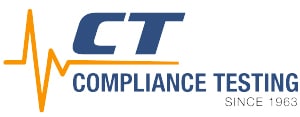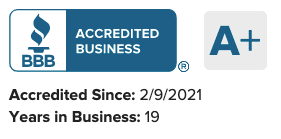Get Free Help From Our Engineers With FCC Testing & Compliance
Need help complying with FCC standards for electronics? We work with businesses and individuals worldwide, including in Germany, to achieve compliance with Part 15 and other FCC regulations.
Click the “Talk to Our Team” button or call us on 866-540-5287 to ask our engineers your question about FCC compliance, or request a free quote for testing and achieving FCC authorization for your device.

If you currently sell an electronic device in the European Economic Area (EEA), you’ve likely gone through the CE certification process. Achieving compliance with European Conformity (CE) requires testing your device and ensuring it meets the EU’s standards.
Unfortunately, while the CE mark acts like a regulatory passport for your electronic product in Europe, giving you access to the entire common market, it doesn’t mean that you can market your device in the United States.
The good news is that American electronics regulations are fairly simple to understand, and if your device has already received a CE mark, complying with American standards is usually a straightforward process.
Below, we’ve explained the role of CE certification in the US market, as well as how electronic devices need to be certified by the FCC to be sold in the United States.
We’ve also discussed the typical process for completing CE testing and achieving compliance for your electronic device, from testing to a Declaration of Conformity (DoC) or certification.
For more information about bringing your CE-certified product to the United States, or to learn more about any aspect of electronic device testing and compliance, contact our accredited lab online or call us at 866-540-5287.
CE Certification & The US Market: The Basics
The CE mark, which signifies that a product complies with European Union safety, health and environmental protection regulations, is required for almost all electronic devices marketed in the European Union and European Economic Area.
Some countries allow products that have achieved CE compliance to go on sale without any requirement for additional testing and compliance.
However, the CE mark does not apply in the United States, and electronic devices that have received CE certification cannot legally enter the United States market without also passing testing for US electrical compliance regulations.
The United States has its own regulatory framework for electronic devices. Most electronic or electrical products sold in the United States are regulated under the Federal Communications Commission (FCC), which sets its own standards for device performance.
Most notably, the FCC regulates most electronic devices that emit radio frequency energy via the FCC Part 15 rules, which are part of the Code of Federal Regulations, Title 47.
CE Certification vs. FCC Compliance
So, what does all of this mean? While the legal terms behind American electronics regulations can seem complicated, the reality is pretty simple. Before your device can enter the US market, it needs to undergo lab testing to ensure it complies with the FCC’s standards.
FCC compliance is more specific in scope than CE compliance. While the CE mark is a broader certification that covers numerous aspects, such as health, safety and environmental protection, FCC compliance primarily focuses on electromagnetic compatibility (EMC).
The FCC aims to prevent electronic devices from being released in the United States if they are at risk of causing electromagnetic interference (EMI) or malfunctioning when they’re exposed to EMI from other devices.
These are also components of EU regulations, such as the EMC Directive. However, while tests may overlap, you’ll need to complete independent testing for your device to achieve compliance with the FCC rules if it has previously only been certified for the CE mark.
This means working with an accredited testing lab to carry out testing, prepare reports for your device, and complete either certification or a Declaration of Conformity (DoC).
We’ve broken down this process into steps below to help you gain FCC compliance and bring your electronic device to the US market.
How to Get US Market Access for Electronics
Determine Your Product’s FCC Requirements
The first step in achieving FCC compliance and accessing the United States market is to work out which FCC rules apply to your device.
Most electronic devices are regulated under FCC Part 15, which sets standards for emissions and immunity. These standards may vary based on your device type, with separate standards for intentional radiators (such as phones or Wi-Fi devices) and unintentional radiators.
Our guide to the differences between FCC Class A and Class B devices explains how the FCC regulates different device types based on their purpose and design.
Not sure if your device is an intentional or unintentional radiator? Contact us to talk to our team and learn about the specific regulations that apply to your device in the United States.
Testing and Documentation
The next step in achieving FCC compliance is electronic device testing. This process involves working with an accredited testing lab to verify that your device operates within the standards set under FCC Part 15 (or the relevant other FCC regulations).
FCC testing involves measuring your device’s radiated and conducted emissions — emissions that occur via electromagnetic fields or cabling. It also involves assessing your product’s ability to tolerate emissions from other devices, referred to as immunity.
As an accredited electrical testing lab, we can complete the testing process for you and ensure your device meets all FCC standards for legal sale within the United States.
Following testing, you’ll receive a test report and other documentation required for compliance with the FCC’s standards.
Certification and FCC Labeling
Depending on your product’s class, you may need to complete a Declaration of Conformity or apply for FCC certification. Our team can assist you in understanding which option is required for your device, as well as the steps you need to take following testing.
After approval, your electronic device must be properly labeled with the FCC mark to indicate that it fully complies with all applicable FCC regulations.
Maintaining Compliance
After completing testing and affixing the FCC mark to your product, it’s important to stay up to date with FCC regulations. Standards can change over time, and you’ll likely need to make a proactive effort to make sure your device remains compliant throughout its lifecycle.
Ongoing compliance is particularly important if your product changes over time, makes use of new technologies, or undergoes design revisions that may affect compliance.
Contact Us to Learn More About FCC Compliance
Expanding from the European Union to the United States can feel intimidating, with a range of different regulations to consider. The good news is that if you already have CE certification for your electronic device, you’ll likely face few difficulties completing FCC compliance.
As an accredited testing lab, we’ve helped hundreds of businesses complete testing, achieve compliance with FCC regulations and market their devices in the United States. Our team of experts can help you with everything from early planning to lab testing and documentation.
To learn more about FCC testing and compliance, ask our engineers a question, or request a free quote for your device, contact us online or call us at 866-540-5287.
Request a Free Quote From Our Team
Please enter your name, contact information, and any information about your device and the type of testing you need into the form below. Our team of engineers and compliance specialists will contact you as soon as possible with a free quote for your project.




